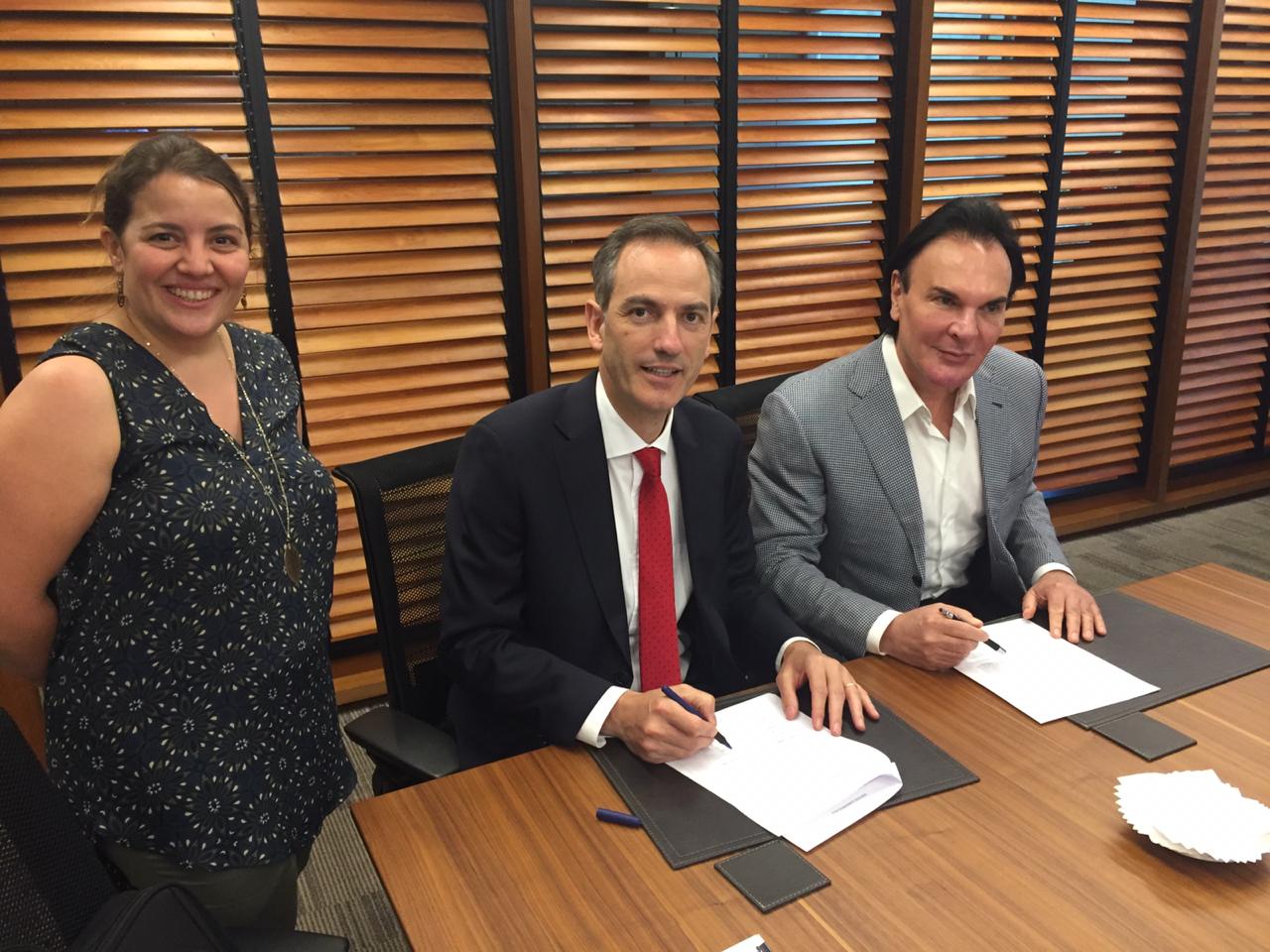Crystal Lagoons and Fraunhofer sign an agreement to build a pilot plant to desalinate water that minimizes the use of electricity
The Crystal Lagoons company and the Fraunhofer Chile Research Foundation signed a collaboration agreement whose objective is to build a prototype of water desalination with membranes, which would radically reduce energy consumption in obtaining fresh water.
The production costs of desalinated water with membrane distillation technology (MD), marketed by Solar Springs, could reach values up to 60% lower than with conventional "reverse osmosis" technologies, according to the simulations and analyzes carried out by Fraunhofer ISE in Germany, through several studies that were commissioned by Crystal Lagoons as of 2016.

The Crystal Lagoons business group has developed several technologies for design, construction and operation of clear water lagoons for industrial or recreational purposes. Fraunhofer has worked with the company since 2015 in several studies. In the first of them, the technical-economic viability of the combination of the technology developed by Crystal Lagoons with desalination technologies developed by Fraunhofer ISE was investigated.
Later, in 2017, Fraunhofer ISE and CSET jointly developed a study to reduce the costs of this membrane desalination technology from seawater. This method would be carried out using residual thermal heat from the Crystal Lagoons process, which for practical purposes means the radical reduction of energy consumption.
The 20th. December 2018 is another important date, where the collaboration agreement was signed. The main objective is to validate the results of the previous analyzes, through the construction of a prototype, which will begin in the first semester of 2019. The preliminary work will include, among other things, the development and writing of a proposal for presentation to CORFO funds. The project is scheduled to last two years and includes the construction of a pilot plant in Fraunhofer ISE (Germany) and its installation and commissioning at the Crystal Lagoons facilities in Antofagasta, Chile.
This innovation can become a viable solution to face the dramatic shortage of fresh water that afflicts more than 1.100 million people in the world, according to estimations of the United Nations Environment Program (UNEP).
The main difference with respect to current technology (reverse osmosis) is that the new system, which will be installed in Crystal Lagoons, does not use electrical energy to drive the desalination process, but uses thermal energy. This energy can come from thermal solar collectors or from the waste heat of industrial processes, which makes the process significantly cheaper.
A great alliance
For Dr. Mercedes Ibarra, expert in Solar Thermal Energy at Fraunhofer Chile CSET, the union of these entities is a great opportunity to demonstrate that membrane distillation technology is technically and economically viable, offering an alternative solution to the problems of scarcity of water in the country.
"At Fraunhofer we are very pleased to have the opportunity to collaborate with Crystal Lagoons, as they have abundantly demonstrated their capacity for innovation, and we hope to achieve a synergy of capabilities between both entities. Our vision is that this project will allow us to strengthen the implementation of the Fraunhofer innovation model, which is based on the ability to provide research services to clients in the public and private sectors. It also reflects the effort we are making to link more strongly with companies and connect better with the needs of the productive sector. "
 Fraunhofer Chile Research
Fraunhofer Chile Research